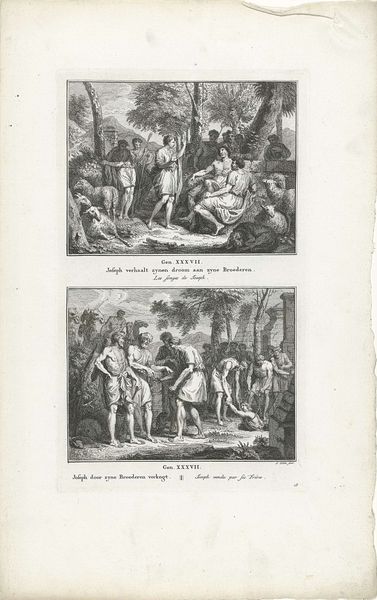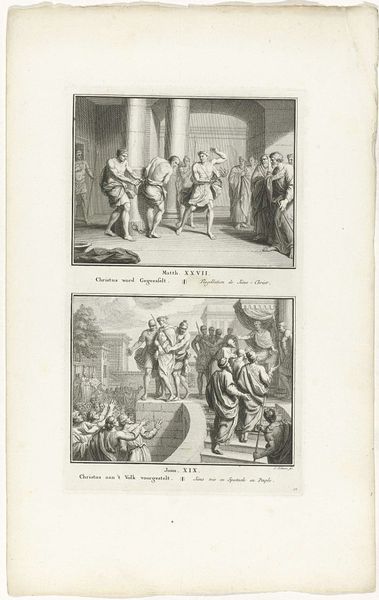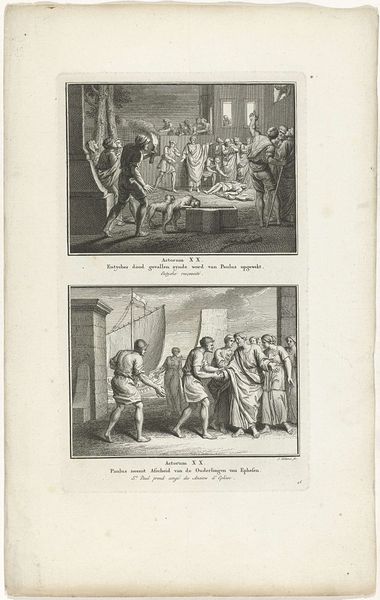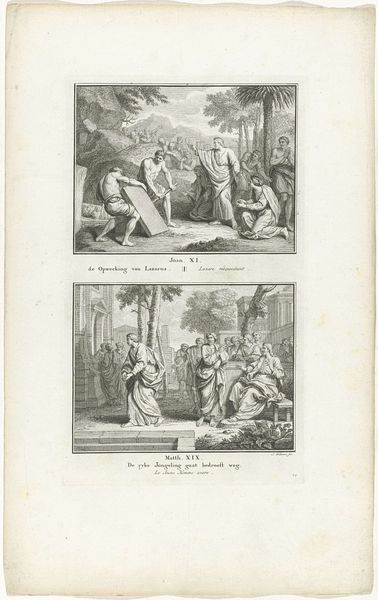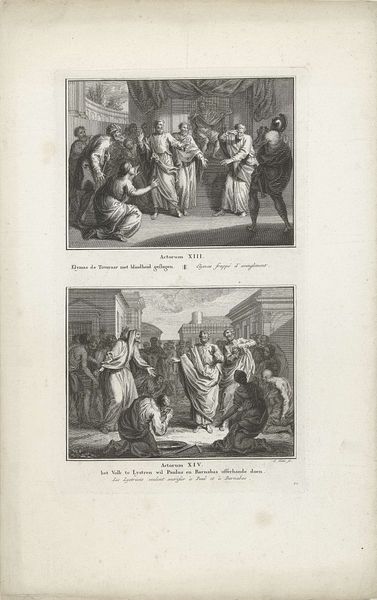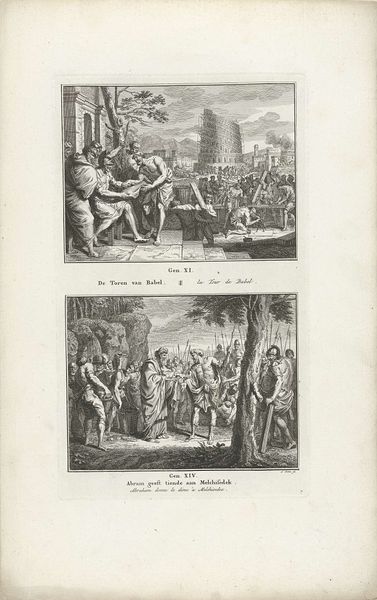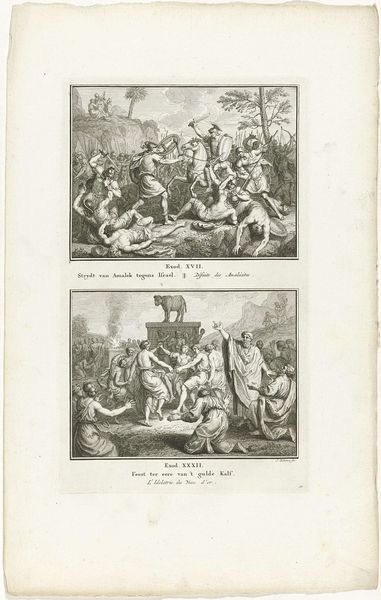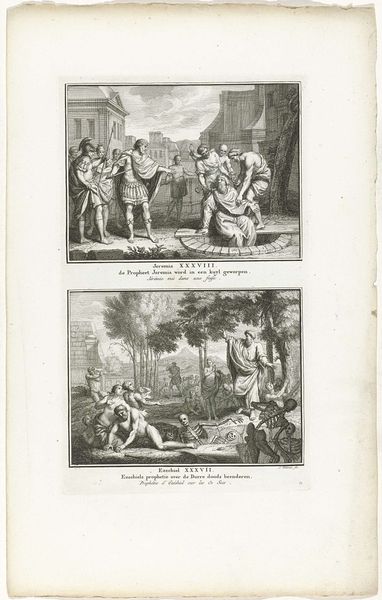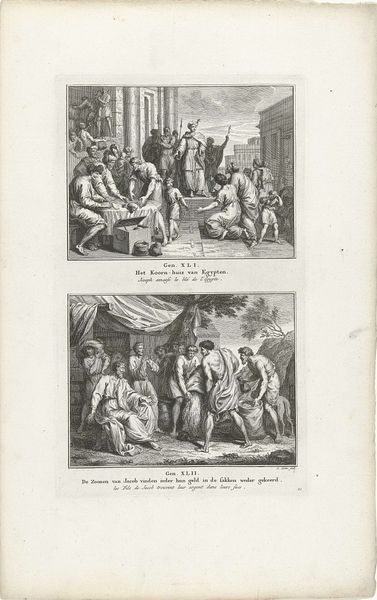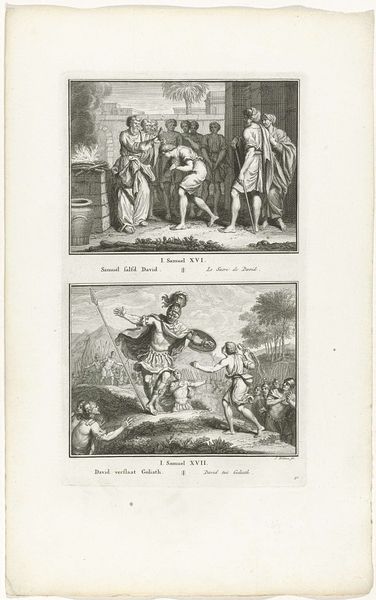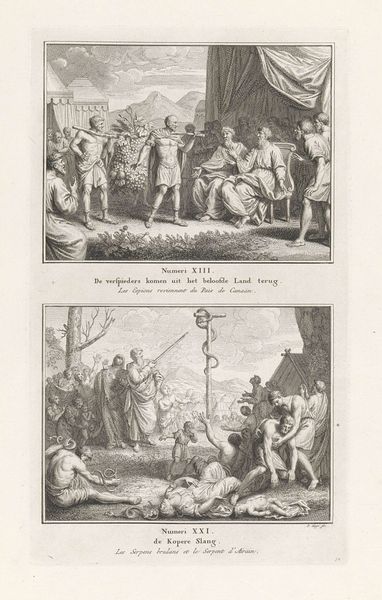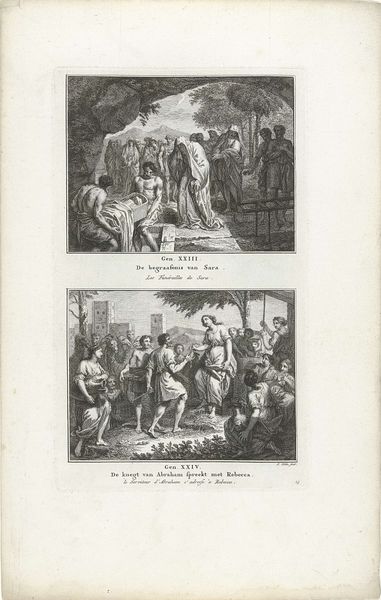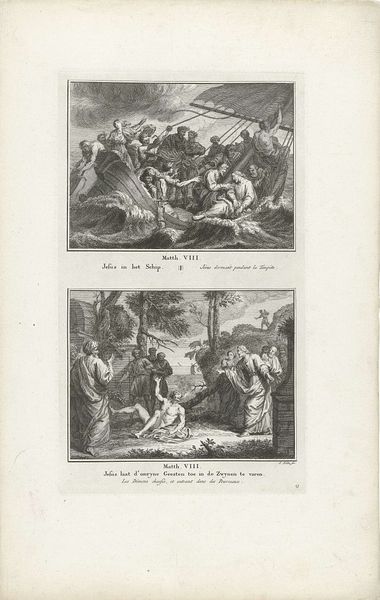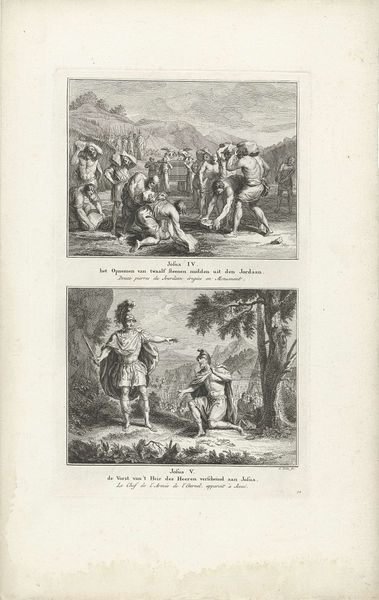
Gideon beveelt zijn manschappen water te drinken en kostbaarheden van de Midianieten worden aan Gideon gegeven 1791
0:00
0:00
jacobfolkema
Rijksmuseum
Dimensions: height 325 mm, width 195 mm
Copyright: Rijks Museum: Open Domain
Editor: This engraving, created by Jacob Folkema in 1791, depicts two scenes from the story of Gideon. The details are so precise; it almost feels like I’m looking at a miniature play. The upper scene has an element of tension and judgment; the bottom, of celebration. What historical or cultural elements can you pull from the print's narrative? Curator: It's crucial to consider the role of religious imagery within the broader social landscape of 18th-century Europe. How do you think these images of Gideon being used to uphold specific moral values of the time? Notice the emphasis on military leadership and divine favour – things like selecting troops. How could those images work to legitimize those in power at the time this work was created? Editor: That makes me think about the selection of those fit to serve versus those who lap like dogs; there is a clear implication about who is worthy to serve and what traits might signal that to observers. And in the lower image, the warriors adorn Gideon after slaughtering their foes. Curator: Exactly. It also might make one consider how imagery influences our interpretation of scripture and power. Consider, how did Dutch politics inform how Folkema decided to make his print? Who do you suppose the intended audience might have been, and where would they typically view such a work? Editor: I guess it depends, whether it would have been for individual devotional practices or distributed widely as propaganda to unite groups against invaders. Curator: Precisely. And thinking about the proliferation of prints and engravings… these affordable prints made such narratives available to more people. We shouldn’t underestimate that access, nor how these narratives can reinforce specific social and power dynamics, as well as function to inform individual practices. Thanks, that was revealing. Editor: Thank you. That has changed how I look at it!
Comments
No comments
Be the first to comment and join the conversation on the ultimate creative platform.
